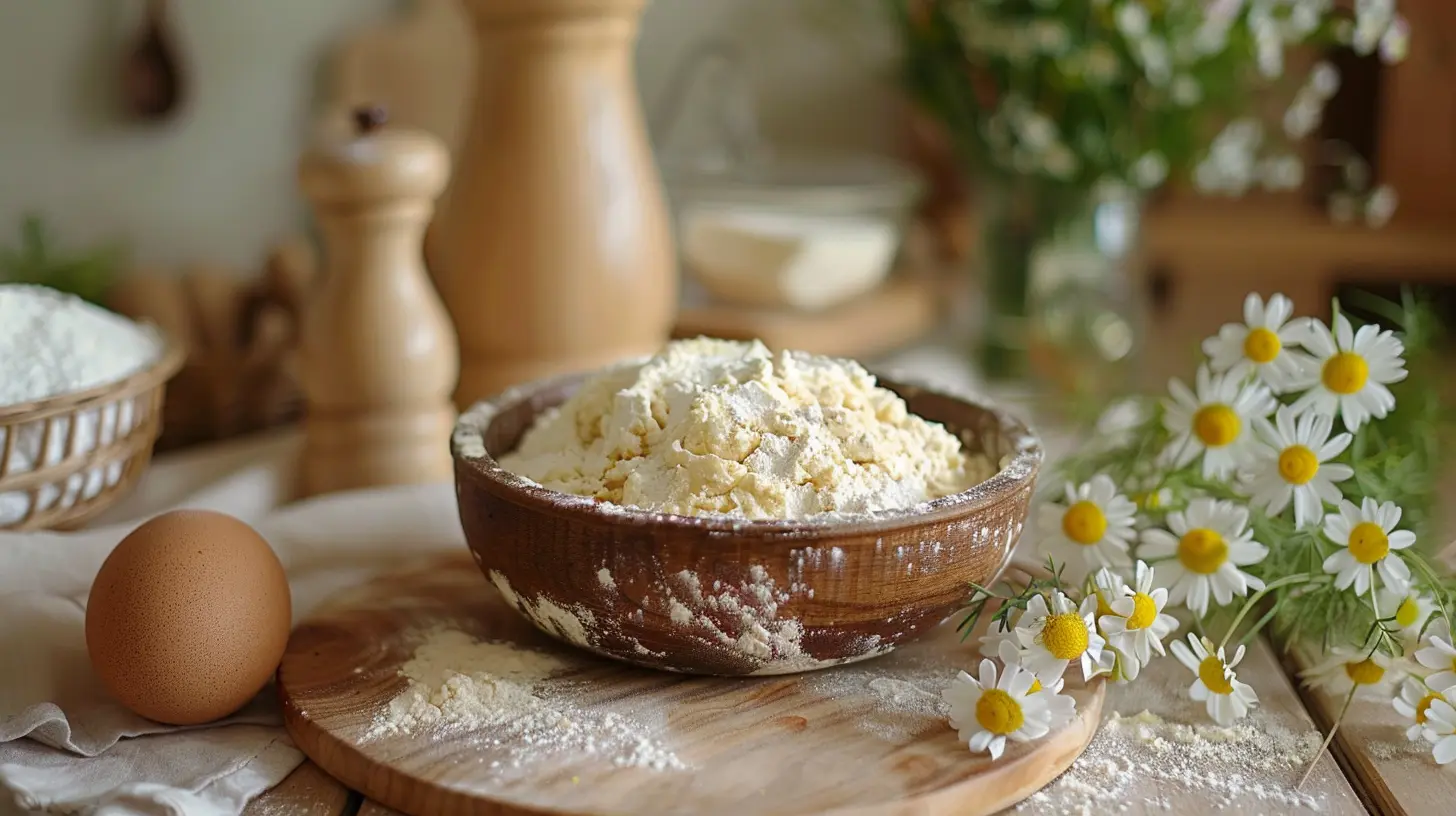The Role of Organic Foods in Managing Chronic Inflammation
22 September 2025
Let’s be honest here, when someone mentions chronic inflammation, it sounds like a medical buzzword straight out of a health magazine. But guess what? It’s real, and it’s a sneaky little culprit behind many health problems, from arthritis to heart disease. The good news? Your diet can play a HUGE role in keeping it at bay. And one of the best tools in your anti-inflammation arsenal? Organic foods.
Yep, those leafy greens, juicy fruits, and colorful veggies with that fancy "organic" label might just be the secret weapon you need. Let’s dive headfirst into the world of organic foods, why they matter, and how they help tackle chronic inflammation.
What Is Chronic Inflammation, and Why Should You Care?
First things first, let’s break it down. Inflammation, in short, is your body’s way of fighting off invaders—like bacteria or viruses. It’s like your body raising its "shield" to protect you. Acute inflammation, like the kind you get from a paper cut, is necessary for healing. But chronic inflammation? That’s a whole different beast.Chronic inflammation is when your body’s defense system doesn’t shut off. It stays ON, constantly releasing inflammatory chemicals that can harm your tissues and organs over time. Think of it like a fire alarm that keeps blaring long after the fire is out. Annoying, right? And dangerous!
Conditions like diabetes, heart disease, Alzheimer’s, and even some cancers are linked to this lingering inflammation. So yeah, it’s a big deal. And while several factors contribute—stress, a lack of exercise, and yes, your diet—food is something you CAN control.
Why Organic Foods Deserve a Spot on Your Plate
Now you’re probably wondering, "What makes organic foods so special? Can’t I just stick to my regular grocery list?" Good question. Let me break it down for you.1. Free From Pesticide Surprises
You know how sometimes you find those tiny stickers on apples that say “organic”? That label isn’t for show. Organic farming avoids the use of synthetic pesticides and fertilizers—stuff that conventional produce often carries.Pesticides have been linked to increased inflammation. Yeah, they’re like those uninvited party guests you don’t want to deal with. When you choose organic, you’re skipping a whole lot of these nasty chemicals. So, no pesticides equals one less trigger for inflammation.
2. Packed With Nutrients
Organic food isn’t just about being "clean"; it’s about being nutrient-dense. Studies suggest that organic fruits and veggies have higher levels of antioxidants compared to conventionally grown ones.Antioxidants are like the superheroes in your body. They neutralize free radicals (those pesky rogue molecules) that contribute to chronic inflammation. So, if you’re munching on organic blueberries, you’re not just snacking—you’re arming your body with an antioxidant arsenal.
3. Better for Your Gut Health
Let’s talk about your gut for a second. Did you know that a big chunk of your immune system lives in your gut? Yup! And a healthy gut can keep inflammation in check.Here’s where organic foods shine again. Organic produce tends to have higher levels of natural compounds like polyphenols, which support gut bacteria. Plus, because organic foods don’t have synthetic additives, they’re less likely to mess with your gut microbiome. It’s like giving your gut army the right tools to fight off inflammation.
4. No Hormonal Havoc
Organic milk, meat, and eggs are free from hormones and antibiotics. Why does this matter? Hormones and antibiotics in conventional animal products can mess with your body’s natural balance, potentially triggering inflammation.By opting for organic, you’re dodging these hormonal landmines. It’s like choosing a smooth, drama-free relationship over a toxic one—your body will thank you. 
The Organic Foods That Pack a Punch Against Inflammation
Alright, now that you’re sold on organic foods (hopefully), let’s get to the fun part: what should you actually eat? Here’s a handy list of inflammation-fighting organic foods to stock up on.1. Leafy Greens
Spinach, kale, arugula—you name it. Leafy greens are rich in vitamins, minerals, and antioxidants like vitamin K, which can help curb inflammation.2. Berries
Organic blueberries, strawberries, and raspberries aren’t just delicious; they’re loaded with polyphenols. These compounds help lower markers of inflammation.3. Fatty Fish
Wild-caught, organic salmon or mackerel are top-notch sources of omega-3 fatty acids. Omega-3s are famous for their anti-inflammatory properties. It’s like giving your body a soothing balm.4. Nuts and Seeds
Snack on organic almonds, walnuts, and chia seeds. They’re rich in magnesium, which has been shown to reduce inflammation and keep your body calm.5. Extra Virgin Olive Oil
This isn’t just a salad topping. Organic olive oil is packed with oleocanthal, a compound that mimics the effects of anti-inflammatory drugs. Talk about multitasking!6. Herbs and Spices
Organic turmeric and ginger deserve a standing ovation. Both are powerhouse spices that reduce inflammation and add flavor to your meals.
How to Make the Switch: Practical Tips
Feeling overwhelmed? Don’t be! Transitioning to organic foods doesn’t have to be all-or-nothing. Start small and work your way up.1. Prioritize the Dirty Dozen
The Environmental Working Group (EWG) releases a list called the "Dirty Dozen" every year. These are the fruits and veggies with the highest pesticide residue. If you’re budget-conscious, start by buying organic versions of these.2. Shop Local
Farmers' markets are your best friend. Local organic produce is often fresher (and sometimes cheaper) than what you’ll find in big-box stores.3. Cook at Home
Here’s the deal: when you cook at home, you control what goes into your meals. Whip up some delicious recipes using organic ingredients—it’s healthier and wallet-friendly.4. Use Organic Staples
Can’t buy everything organic? That’s fine. Focus on the staples you eat most often, like organic milk, eggs, and greens.The Ripple Effect: Other Benefits of Going Organic
Sure, reducing inflammation is the star of the show, but going organic also comes with some awesome side perks. It’s better for the environment, promotes animal welfare, and tastes fresher. Also, let’s not forget: you’re supporting sustainable farming practices. It's like a win-win-win situation!Final Thoughts: Is Organic Food the Magic Bullet?
So, is organic food some kind of magical cure-all? Nah, let’s keep it real. Eating organic alone won’t fix all your problems or banish inflammation overnight. But it’s a huge step in the right direction.Pair your organic diet with other healthy habits like exercising, managing stress, and getting enough sleep, and you’re setting yourself up for a healthier, inflammation-free life. Think of it as part of the bigger puzzle—a vital piece that makes everything else click into place.
So, the next time you’re at the grocery store, reach for that organic apple. Your body (and taste buds) will thank you.
all images in this post were generated using AI tools
Category:
Organic FoodsAuthor:

Laurie Barlow
Discussion
rate this article
1 comments
Lana McGlynn
This article provides valuable insights into how organic foods may help manage chronic inflammation. While the benefits of organic produce are promising, it's essential to consider individual dietary needs and lifestyle factors. A balanced approach, including varied whole foods, is key to overall health and wellness.
October 10, 2025 at 4:36 AM

Laurie Barlow
Thank you for your thoughtful comment! I completely agree that a balanced approach tailored to individual needs is crucial for managing chronic inflammation effectively.


